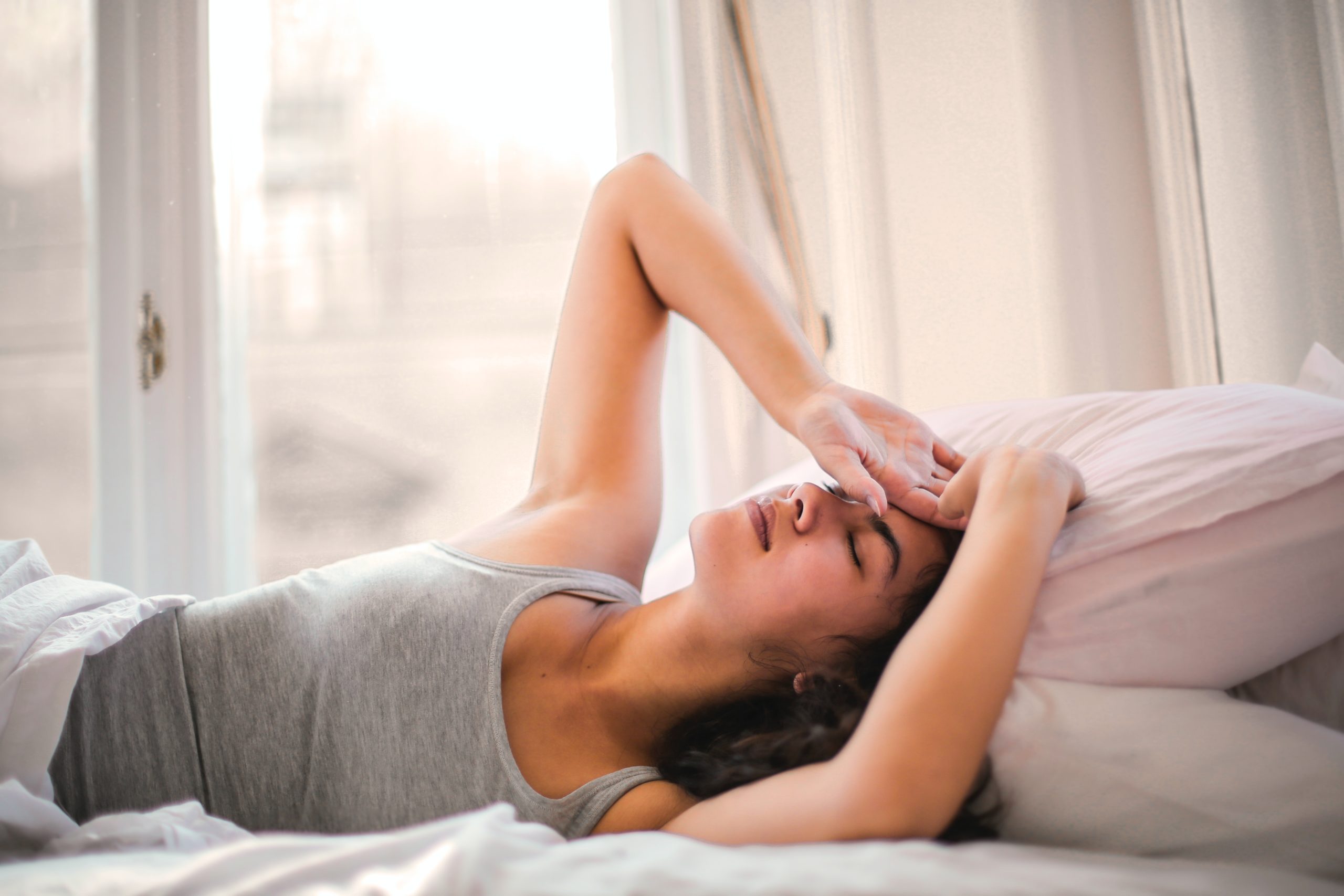If you have noticed your usual sleep patterns have changed as lockdown has progressed, you are not alone. Many people are suffering from sleep problems for the first time in their life.
Stress affects sleep as the body releases chemicals into our system which are specifically designed to keep us awake and alert. With the increased anxiety caused by the Coronavirus, it’s therefore not surprising that one of the biggest reported impacts on our day to day life, is our inability to get a good night’s sleep.
You may have noticed some or all of the following:
- Unable to get to sleep at all – feeling wide awake and alert. Or alternatively feeling sleepy but with an endless stream of thoughts in your mind that you can’t seem to switch off.
- You may actually fall asleep easily, but wake up in the middle of the night (often between 2.00pm – 3.00pm) unable to drift back to sleep for hours.
- You could be experiencing more intense and emotional dreams.
- You start worrying about going to bed long before you actually do. Dreading another sleepless night.
- Feeling fidgety and restless, unable to settle into a comfortable position.
- Excess sweating and/or headaches.
This can lead to:
- Feeling tired and groggy the next morning.
- Waking up with a pounding heart, feeling anxious.
- Worrying about how you will get through the day.
- Finding it more difficult to motivate yourself to do anything.
- Struggling to concentrate or function properly.
- Feeling irritable and impatient with yourself and others.
Help yourself Break out of this Vicious Cycle
- Limit news intake and avoid your mobiles and tablets for at least an hour before bed.
Do something to boost your mood instead – watching something on TV that is light hearted or listening to a podcast that is positive and uplifting before bed can create the sort of chemistry which helps you sleep naturally.
2. Learn to Relax
Physical relaxation switches off the stress response, physically and mentally. Find something that works for you – mindfulness meditation, progressive muscle relaxation, deep rhythmic breathing – relaxing music – a long hot bath before bed.
3. Focus on Resting
Once we get stuck in this pattern of insomnia, we become obsessed with the need to sleep which just produces more anxiety, therefore more of the chemistry that keeps us alert and the cycle continues. Instead think about simply resting rather than sleeping. Even if you’re not asleep, the body enjoys great benefits by simply relaxing and taking time out from all it’s normal activities. Once you take the pressure of ‘trying to go to sleep’, it often comes upon us naturally.
4. Ban Looking at the Time
Regularly looking at the time and working out how many hours you’ve slept or not slept is guaranteed to trigger stress, frustration and anxiety. Be disciplined and break out of that habit.
5. Write a List
If you find that your mind is full of ‘things to do’ – write them down on a pad beside your bed. Your brain then no longer has the need to keep hold of them all night long as it feels as though they have been taken care of.
6. Bore yourself to Sleep
If all else fails, listen or read something very technical or boring. Trying to keep up with it, wears your brain out, and it switches off, drifting into a deep sleep instead. Let’s face it we’ve all had that experience more than once in our lives. Where you’ve been listening to someone who bores you to tears and have found yourself struggling to stifle the yawns or keep your eyes open!!!!
Your bed should not be a battle ground. Put these steps into place and make it a place to relax and look forward to.
Hypnosis can help many forms of sleep issues and insomnia. If you continue to suffer from sleeplessness and find that it has become a real problem for you, don’t hesitate to give me a call on 01206 683069 so that you can return to enjoying deep restorative sleep.


Comments are closed